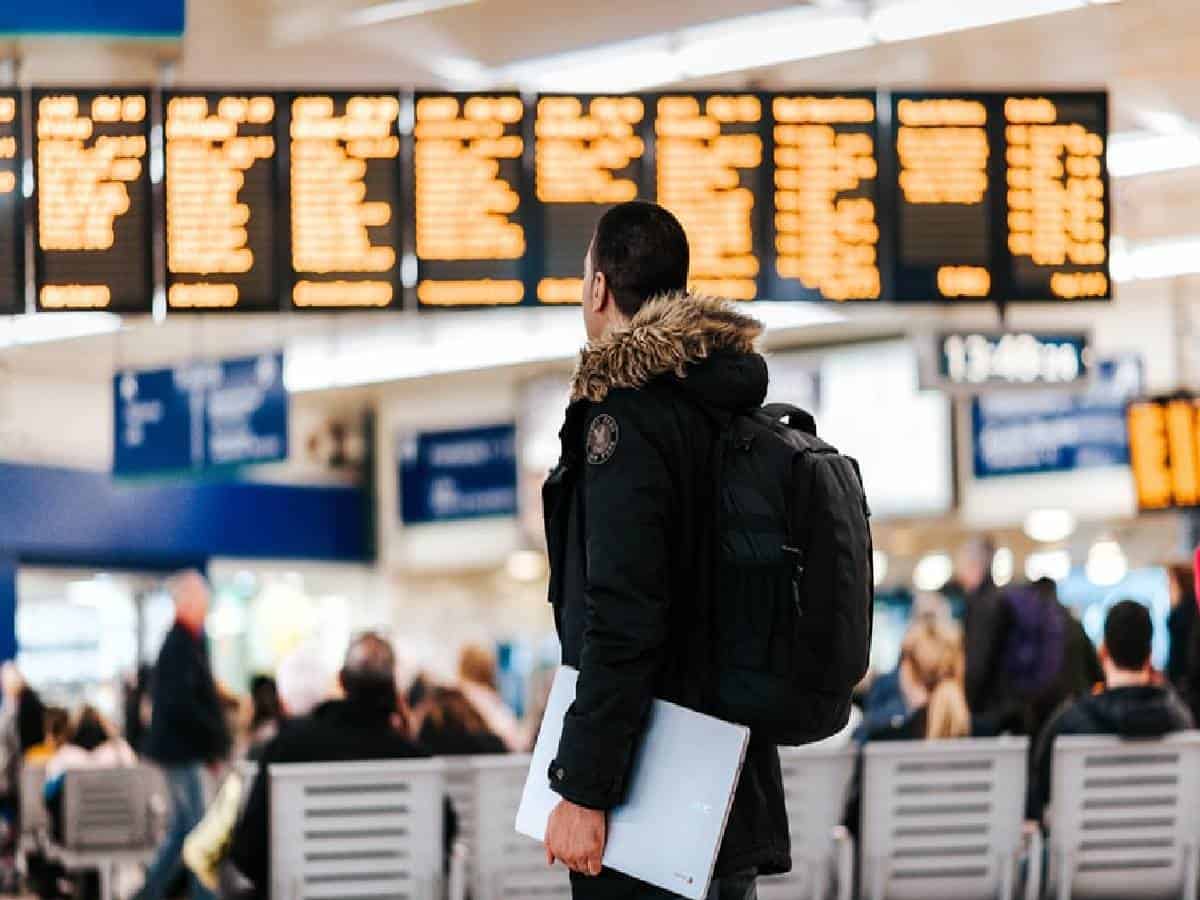The discovery of a new COVID-19 variant in South Africa triggered a global alarm on Friday as Middle Eastern countries among several others are halting flights from 7 southern African countries.
The seven countries are South Africa, Namibia, Botswana, Zimbabwe, Mozambique, Lesotho and Eswatini.
In order to avoid any further spread of the virus, the Middle Eastern countries— Saudi Arabia, United Arab Emirates, Qatar, Bahrain, Jordan, Turkey, Israel and Egypt have called on everyone who had planned to visit any of these countries to postpone their trip until the epidemiological situation improves.
Here are the list of countries impose travel ban
Britain was one of the first to implement a ban on flights. US, UK, Japan, Israel, Canada, Spain, France, European Union, Dutch, Singapore, Malaysia, Sri Lanka, Austria, the Czech Republic, Germany, Denmark, Greece, Switzerland, Hong Kong, Russia, Italy, and the Netherlands on Friday joined Britain in banning travel from South Africa.
Here is what we know about the B.1.1.529 COVID-19 variant so far
The variant – called B.1.1.529 – contains a “very unusual constellation” of mutations, which is worrying because it can help evade the body’s immune response and make it more transmissible.
The B.1.1.529 variant contains about 50 mutations overall, including more than 30 on the spike protein alone. The spike protein is the part of the virus that sticks to the surface of the human cell and is the most visible part of the virus. Current vaccines are designed to target the spike protein and the more mutations there are on it, the higher the chances that the virus has the ability to evade them.
“As scientists have described, [this is] the most significant variant they’ve encountered to date,” British Transport Secretary Grant Shapps told Sky News.
When and where was it first discovered?
The first surge in COVID cases was observed in South Africa’s Pretoria and the surrounding Tshwane metropolitan area and appeared to be cluster outbreaks from student gatherings at universities in the area. Amid the increase in cases, scientists studied genomic sequencing and discovered the new variant.
It was first detected in South Africa, with the National Institute for Communicable Diseases (NICD) stating on Thursday that it had confirmed 22 positive cases, with more cases being confirmed as test results come out.
It has also been found in Botswana and Hong Kong, the case in Hong Kong being a traveler from South Africa.
When it was declared and what does the World Health Organization say?
The World Health Organization on Friday, November 26 declared the recently-discovered B.1.1.529 strain of COVID-19, first detected in southern Africa, to be a variant of concern and renamed it Omicron.
Amid concerns that the new alternative could be more contagious and avoid immunization, the World Health Organization (WHO) said it would take several weeks to understand.
On Friday, Maria Van Kerkohove, COVID-19 technical lead at WHO, had said in a statement: “This variant has been detected and reported to us by our colleagues in South Africa. There are fewer than 100 whole-genome sequences that are available. We do not know very much about this yet. What we do know is that his variant has a large number of mutations. And the concern is that when you have so many mutations, it can have an impact on how the virus behaves.”

